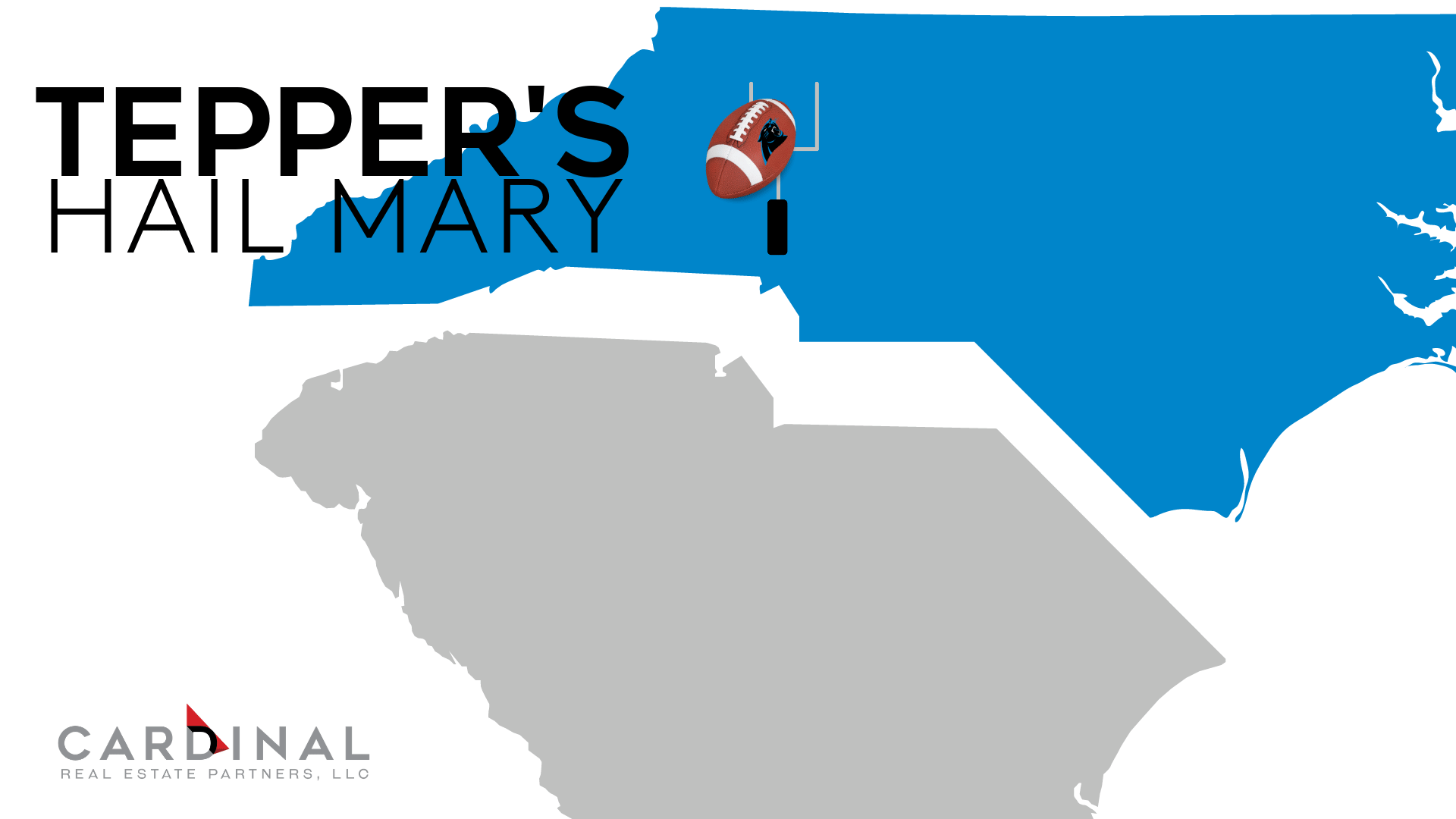It struck me this weekend that there is very little being said – at least publicly – about the Carolina Panthers moving their headquarters to Rock Hill. And when I say not much being said, I mean from north of the NC/SC state line.
And it’s not making any sense to me whatsoever – either the move or the lack of noise from Charlotte and NC officials surrounding the decision.
Clearly, Panthers’ owner David Tepper is a smart guy. He’s a billionaire businessman and president and founder of Appaloosa Management global hedge fund. A 2010 profile in New York Magazine described him as the object of “a certain amount of hero worship inside the (hedge fund) industry,” with one investor calling him “a golden god.”
Suffice to say, he has made many successful decisions throughout his career. But this one – putting the team headquarters and practice facility in York County – screams bad business decision to me.
Tepper is big on embracing the “two states, one team” attitude for the team. And his interest in finding a new indoor practice facility intensified last season thanks to heavy rains. Reports have pointed to a site in Rock Hill along I-85 South, near Cherry Road.
The idea is similar to what other teams have done, such as those in Pittsburgh, Dallas and Minneapolis, where the training facility is separate from the stadium and becomes a destination for fans. There would be a hotel built near the Panthers training facility in York County for those who come to visit.
In many ways, this decision is similar to one that executives make when deciding where to put a future stadium. You want to make it a smart location. Which brings me to my primary concern: If you look at the demographics of Rock Hill and the surrounding area, it’s clear it is a small city with relatively less money than some other similarly sized metro areas. As an example, Rock Hill does not have any golf course communities. It’s a perfectly nice place to live and mostly middle class, but as soon as one goes south and into Chester County, it gets very rural and remote quickly. It’s easy to feel there is nothing out there except for pine trees.
When you consider the pull that the new training facility would have, it’s reasonable to conclude that the audience will have to come from the Charlotte area to the north, or an hour-drive south from Columbia. If you were driving up from Columbia, wouldn’t you rather drive an additional 15 minutes and have access to the amenities in uptown Charlotte? To an area where there are a bunch of hotels to choose from and other entertainment venues, plus retail and restaurants and bars?
I think about the baseball stadium location in Rock Hill. Baseball in Charlotte was dead on the vine when the AAA Charlotte Knights played there. When baseball moved uptown, the team took off and baseball has become cool in Charlotte and the team is one of the country’s hottest in the minor league.
Yes, I get it. An economic incentive package worth $120 million in tax breaks is a lot. Some South Carolina lawmakers are so eager to secure the training facility that they are willing to hand over gobs of money. On Thursday, the SC Senate voted 27-15 to exempt the Panthers from paying state income taxes for players, coaches and other employees for 15 years if they use the money to build their new complex near Rock Hill.
I understand: that is a lot of incentive. But no amount of incentives makes up for a bad business plan.
I also argue the group doesn’t need 130 acres for a practice facility and a hotel. I could easily come up with a 50-acre site near Carowinds, and still, in SC, that could meet the team’s needs while being much closer to the bulk of the PSL owners.
The potential for what the Carolina Panthers could do with a training facility and HQ is huge in terms of becoming a true destination for visitors. I’m surprised there hasn’t been more grumbling from Charlotte boosters and persuasive arguments made for keeping such the team closer to the Queen City. Maybe Tepper is using South Carolina as leverage for getting a new stadium out of Charlotte down the road.
Still, it is a mystery to me why more people aren’t worried about the lost headquarters jobs. It seems like people are accepting the decision as a fait accompli.
Amazon made a HQ decision and then changed its mind. There’s no reason why this situation has gone so far that a similar reversal or change of course can’t happen as well.







